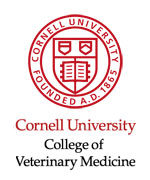Day
Two – 4 November 2016 |
|
SESSION
IV: WHICH WAY, MARKETS? [Chair: M. Mulumba] |
PRESENTER |
10:00 |
A
Taste of India: Value-Added Meat Processing & Market
Access Despite FMD - Thoughts from One of the World’s
Largest Beef Exporting Countries |
G. Brückner for C. Thota |
10:15 |
From
Where the (Water) Buffalo Roam: India’s
Rise as a Major Exporter of Bovine Meat |
S. Osofsky for P. Birthal |
10:30 |
The Utility of Mobile Abattoirs |
T. Bergh |
10:40 |
Q&A Session |
|
|
SESSION
V: WHICH WAY, MARKETS? (cont.) [Chair: M. Mokopasetso] |
|
11:00 |
A Perspective from the Meat Board, Namibia |
P. Strydom & A. Boshoff-De Witt |
11:15 |
A Perspective from the Botswana Meat Commission
(BMC) |
S. Ghanie |
11:30 |
A Perspective from Zambeef |
F. Lupindula |
11:45 |
Q&A Session |
|
12:00 |
TEA BREAK |
|
|
SESSION
VI: PROGRESSING IMPLEMENTATION OF COMMODITY-BASED TRADE
OF BEEF AND BUILDING STRONGER BRIDGES BETWEEN THE AGRICULTURE
AND WILDLIFE CONSERVATION SECTORS [Chair: S. Osofsky] |
|
12:15 |
Overview
of Updated Draft “Guidelines
on Applying Commodity-Based Approaches to Management
of Foot and Mouth Disease Risk for Beef Exporting Enterprises
in Endemic Areas in Sub-Saharan Africa” |
M-L Penrith & G. Thomson |
12:30 |
Towards
Alignment of Disease Management and Livestock Trade Promotion
in FMD-Endemic Areas of Sub-Saharan Africa: Pragmatic
Approaches to Doing Better |
G. Thomson & M-L Penrith |
12:45 |
The
Comparative Economic Advantages of Multi-Species Systems:
What’s at Stake? |
R. Taylor & D. Cumming |
13:00 |
Q&A
Session |
|
13:15 |
Breakout
Group Session I by Country (introduced by S. Osofsky):
Are you ready to pilot / implement the Guidelines in
your own country? What are the Challenges? Can these
be overcome? Where are the opportunities? |
|
14:00 |
LUNCH |
|
15:00 |
Breakout Group Session II by Country (introduced
by S. Osofsky): Might your country plan on further pursuing
value-chain approaches to producing beef / related products
in the near future? If so, over what time frame? If so,
where specifically, and what types of resources / technical
assistance would be most helpful? What coordination is
needed regionally, including within the TFCA context? And
what needs to be done in terms of securing potential destination
markets within Africa or beyond? |
|
16:00 |
Report
Back to Plenary, WORKING TEA BREAK |
|
16:45 |
Summary
Panel Discussion |
TBD |
17:15 |
NEXT STEPS, CLOSING REMARKS AND ADJOURN |
S. Osofsky, M. Mtsambiwa, U. Ushewokunze-Obatolu |
18:00 |
DINNER ON BANKS OF ZAMBEZI RIVER -
All Participants |
|











